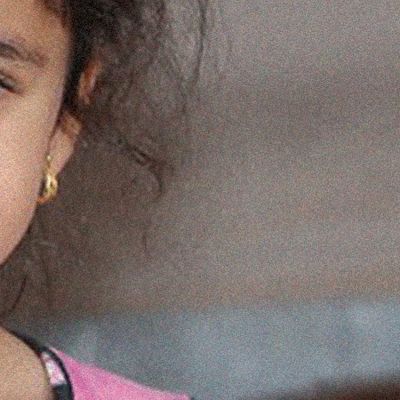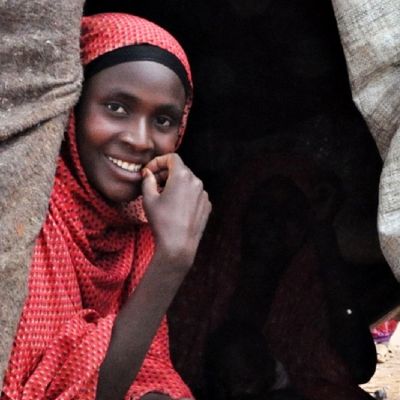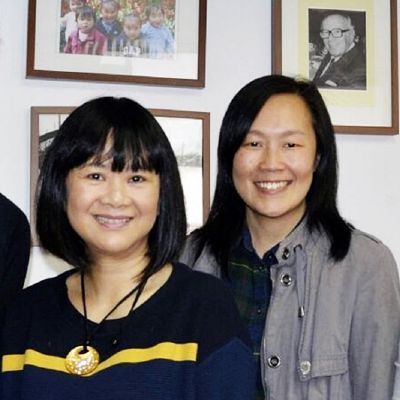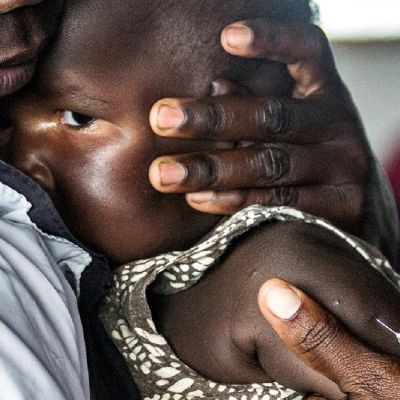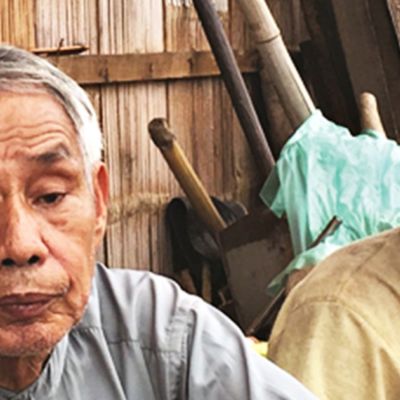Banner image: A 72-year-old pastor partnering with a younger pastor to visit the refugees
The Myanmar government and the anti-government forces were at war for the past 10 years. As the conflict was reinitiated in 2016, the estimated number of internally displaced population has reached 660,000. The conflicts in Kachin State alone forced close to 100,000 to flee to Yunnan, China.
The peace-loving Lisu in Kachin State never took up arms, but their crops, livestock, even villagers, became resources targeted by both the Myanmar government forces and the opposing Kachin forces. The great unrest drove the Lisu away from home who became refugees in Thailand, Malaysia, India, etc.; a lot of them fled to other regions of the country and lived in rural refugee camps, where basic facilities were sorely lacking, in addition to being exposed to air-strikes that had already destroyed several camps.
CEDAR’s partner, the Kachin Lisu Christian Council (KLCC), has faithfully stayed by the side of the Lisu refugees in Kachin State for the past 7 years. Local churches are currently supporting 17 refugee camps, two of which were the serving sites of KLCC. The local churches are fully mobilized in scouring essentials such as rice and clothes for the refugee camps, as well as providing basic education to children. In addition to fulfilling their survival needs, pastors would visit the camps once every two weeks to remind the refugees of the rules and guidelines for living in their camps, to build and maintain an orderly society. They would also worship together and pray for the strength to trust God in hard situations.
David Fish is a 72-year-old pastor who firmly believes that everything the church does in the refugee camps is an effort to maintain the refugees’ dignity, and to strengthen their faith in God despite hardships. David has concurrently adopted 13 war-orphans, giving them a chance to receive education. He believes by doing what he can, the seeds of hope would be planted in the next generation of Lisu.
Content of this issue
Written: Lincoln Chong, Jojo Poon In September 2015, the image of the body of the Syrian boy, Alan Kurdi, washed up on the shores of Mediterranean Sea, drew the attention of the globe to the European refugee crisis and the wars in Middle East. Just a month ago in April, the equally disheartening image of a Syrian father holding the bodies of his little twins died from chemical attacks has once again stirred people’s sentiments. “Now the dwelling of God is with men,” (Revelation 21:3) This promise was not only applicable to the early Christians under Roman suppression, but also to the victims today who seem to have suffered an unending stretch of tortures and hidings because of…
Author: Dr. Mok Chiu Yau (CEDAR China Programme Advisor) In the OT, Ruth was the very definition of an underprivileged sojourner as she had to leave her home in Moab to Israel, an anti-Moabites community, to take care of her mother-in-law. Ruth was probably born around 1,100 B.C. or earlier. Being a Moabite in eastern Palestine, her tribe was shunned upon by the God-chosen Israelites, as centuries ago the Moabite king hired prophet Balaam to curse and expel the Israelites, who at that time was a massive body of refugees themselves, seeking to pass through Moab (Numbers 24:1-6). And then there was the account where Israelites were being seduced by Moabite women into the acts of adultery, and…
Banner image: (Left to right) The author, Executive Director of CA, Mrs. Cheung-Aug Siew Mei, CEDAR Staff, Jojo, and Director of CA’s Centre for Refugees, Justin Gaurav Murgai. Interviewer and Editor: Lincoln Chong Refugees are often viewed as a group of aliens in foreign lands who would only appear on the international news occasionally. The vast majority of Hong Kong people hold the same views, thinking refugees do not concern their well-developed city; yet we forget that our society was built by refugees escaping from civil wars. The waves of Vietnamese refugees in 70s to 80s were also an integral part of Hong Kong’s history. We visited the Christian Action (CA) to find out more about what Hong…
Ever since the declaration of independence of South Sudan, the South African country was never free of ethnic and political conflicts. South Sudan’s President, Vice President, and the House Chair came from the tribe of Dinka, Bari, and Nuer—three of the largest ethnic groups of the country—respectively. The Vice President raised a coup against the President in 2013, and the political conflict quickly turned into a nation-wide civil war, involving over 20 military groups, and causing the deaths of tens of thousands of countrymen. An increasing number of regions were damaged by the violence exerted by both the government and the anti-government forces. The armed conflicts sent more and more Sudanese refugees to the neighboring Uganda, which accepted…
Banner image: A 72-year-old pastor partnering with a younger pastor to visit the refugees The Myanmar government and the anti-government forces were at war for the past 10 years. As the conflict was reinitiated in 2016, the estimated number of internally displaced population has reached 660,000. The conflicts in Kachin State alone forced close to 100,000 to flee to Yunnan, China. The peace-loving Lisu in Kachin State never took up arms, but their crops, livestock, even villagers, became resources targeted by both the Myanmar government forces and the opposing Kachin forces. The great unrest drove the Lisu away from home who became refugees in Thailand, Malaysia, India, etc.; a lot of them fled to other regions of the…



